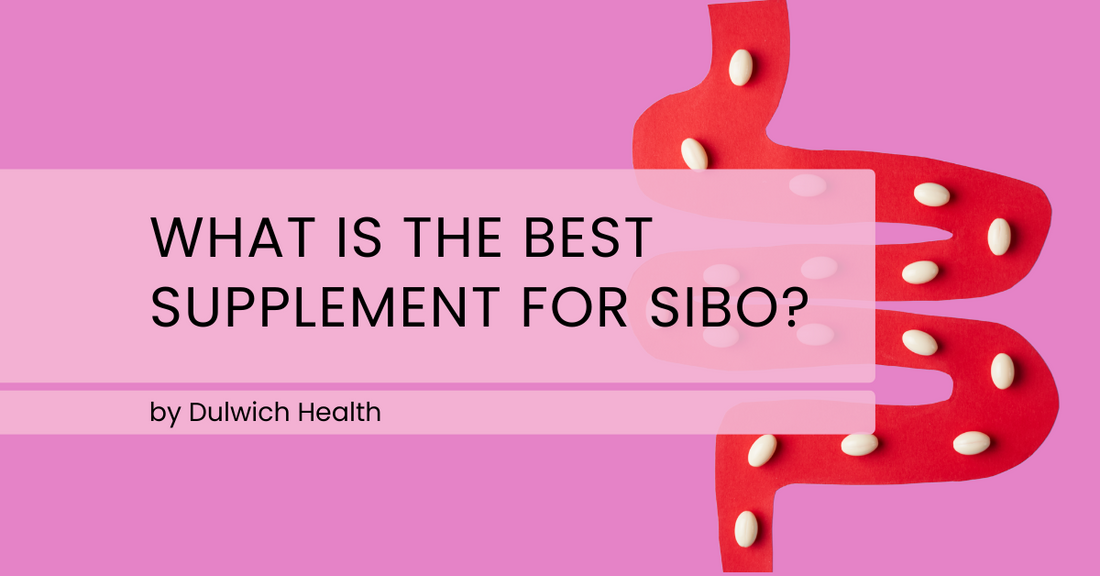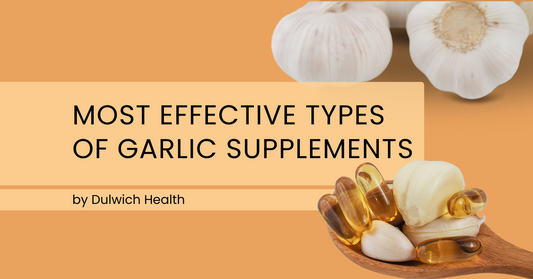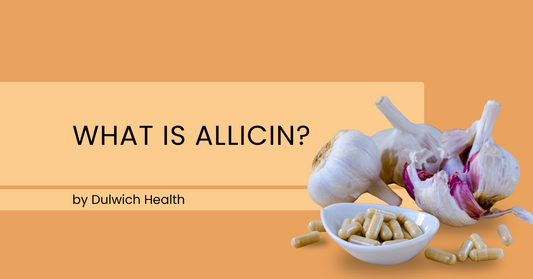Small Intestinal Bacterial Overgrowth—commonly known as SIBO—is a condition in which an excessive number of bacteria colonise the small intestine, a part of the digestive system that typically contains far fewer microbes than the large intestine. This bacterial overgrowth disrupts the normal digestive process and can lead to a wide range of symptoms, including bloating, excessive gas, abdominal discomfort, diarrhoea, constipation, and even unexplained fatigue.
While the gut microbiome is essential for health, having bacteria in the wrong place—or in the wrong quantity—can lead to serious problems. SIBO is a prime example of this imbalance.
Why SIBO Matters
SIBO doesn’t just cause uncomfortable digestive symptoms; it can also interfere with the body’s ability to absorb nutrients properly. This can lead to deficiencies in essential vitamins and minerals—particularly vitamin B12, iron, and fat-soluble vitamins like A, D, E, and K—which can affect everything from energy levels to immune function and bone health.
In chronic or unmanaged cases, SIBO has been linked to more serious complications, such as unintended weight loss, leaky gut syndrome, and increased intestinal permeability, potentially contributing to systemic inflammation and autoimmune issues.
A review in Frontiers in Medicine highlights how SIBO is not only associated with gastrointestinal distress but also linked to extraintestinal symptoms such as fatigue and brain fog (source).
Taking a Holistic, Long-Term Approach
Treating SIBO is rarely as simple as taking a single supplement. A holistic treatment plan is often essential and may include a combination of:
-
Targeted supplements (which we’ll explore in this article),
-
Personalised dietary changes, such as a low FODMAP or SIBO-specific diet,
-
Lifestyle modifications, such as stress reduction and sleep hygiene, and
-
Addressing underlying causes, such as slow gut motility or structural issues in the digestive tract.
At Dulwich Health, we believe in empowering individuals to take proactive control of their health with natural, evidence-based solutions. Supplements can play a vital role in the broader SIBO healing journey, especially when used thoughtfully and in conjunction with a healthcare professional’s guidance.
A Note of Caution
Before we delve deeper, a quick but crucial disclaimer:
This article is for informational purposes only and should not be considered medical advice. If you suspect you may have SIBO or are exploring supplements to support your treatment, it’s vital to consult a qualified healthcare professional, such as a GP, naturopathic doctor, or registered dietitian. Every individual’s situation is unique, and professional guidance ensures you receive safe, tailored, and effective support.
Understanding the “Best” Supplement is Individual

When it comes to treating SIBO, there’s no one-size-fits-all solution. While it’s tempting to search for a single “best” supplement, the reality is far more nuanced. What works well for one person may not be suitable for another, depending on a variety of factors including the type of SIBO, the severity of symptoms, and the presence of any other underlying health conditions.
The Three Main Types of SIBO
SIBO isn’t just one condition—it’s a spectrum that includes different types of bacterial overgrowth, each with its own characteristics and treatment considerations:
-
Hydrogen-dominant SIBO
This type is typically associated with diarrhoea, and occurs when certain bacteria ferment carbohydrates in the small intestine, producing excessive hydrogen gas. -
Methane-dominant SIBO (now often called IMO – Intestinal Methanogen Overgrowth)
People with this type often experience constipation. It’s caused by archaea (methane-producing microorganisms) rather than bacteria, but is closely related to SIBO and treated similarly. -
Hydrogen sulphide SIBO
This emerging subtype can be harder to detect but may involve symptoms such as rotten egg-smelling gas, fatigue, and a mix of diarrhoea and constipation. It's caused by bacteria that produce hydrogen sulphide gas, a compound that can be toxic in high amounts.
Each type responds differently to treatment, so choosing the right supplement means first understanding the kind of SIBO you’re dealing with.
The Role of Testing in Personalised Treatment
To guide treatment effectively, many practitioners recommend a SIBO breath test—a non-invasive diagnostic tool that measures levels of hydrogen, methane, and in some newer cases, hydrogen sulfide in the breath after ingesting a sugar solution like lactulose or glucose. These gases are produced when bacteria ferment the sugars in the small intestine, and their patterns help identify the type and severity of SIBO.
According to a review published in Nutrients, breath tests are widely used to support SIBO diagnosis and direct individualised therapy based on the dominant gas type (source).
Understanding your specific SIBO type enables healthcare professionals to recommend the most effective supplement or protocol—whether that’s antimicrobial herbs, probiotics, or gut-supportive nutrients.
The Bigger Picture: Treat the Person, Not Just the Condition
In addition to SIBO subtype, other factors like your gut motility, immune function, diet, stress levels, and even past use of antibiotics or proton pump inhibitors (PPIs) may influence which supplements are most appropriate. For example, someone with slow digestive motility may benefit from prokinetic agents, while another may need digestive enzymes to support nutrient absorption and reduce fermentation.
That’s why the “best” supplement is the one that suits your body, your symptoms, and your unique health history—ideally chosen in collaboration with a practitioner who understands both the science and the individuality behind SIBO.
Categories of SIBO Supplements

When treating SIBO, supplements often play a supportive role within a broader, personalised treatment strategy. Below, we explore five key categories of supplements that may be recommended depending on your individual case, symptoms, and practitioner guidance.
A. Herbal Antimicrobials – Your Natural Starting Point
Herbal antimicrobials are frequently the first line of natural defence against SIBO. These plant-based compounds offer potent antimicrobial effects—meaning they can help reduce bacterial overgrowth without the same risk of resistance or side effects associated with pharmaceutical antibiotics.
Allicin (Garlic Extract)
One of the most studied and effective natural compounds is allicin, a sulphur-containing compound derived from garlic. Allicin has been shown to exhibit broad-spectrum antimicrobial action, working against a wide range of bacteria, viruses, and even fungi.
Its mechanism of action involves disrupting bacterial cell membranes and interfering with their metabolism, making it particularly effective for SIBO—especially methane-dominant types. According to research published in Antimicrobial Agents and Chemotherapy, allicin's antimicrobial efficacy is comparable to certain pharmaceutical antibiotics (source).
⚠️ Important Note: Whole garlic is high in FODMAPs, meaning it can ferment in the gut and worsen symptoms for many people with SIBO. Purified allicin extract, such as that found in AlliTech from Dulwich Health, contains the active compound without the problematic sugars—making it far more suitable.
Other Common Herbal Antimicrobials
-
Berberine
Extracted from plants like Oregon grape, goldenseal, and barberry, berberine is a powerful antimicrobial and anti-inflammatory agent. It also improves insulin sensitivity and supports gut health. Studies have found it effective in reducing bacterial overgrowth and balancing intestinal flora (source). -
Oil of Oregano
Rich in carvacrol, Oil of Oregano is known for its potent antimicrobial activity, capable of combating a wide range of pathogens. It can help reduce bacterial load and inhibit fungal overgrowth. -
Neem
Traditionally used in Ayurvedic medicine, neem has antibacterial and antifungal properties and may be particularly helpful for methane-dominant SIBO. -
Peppermint Oil (Enteric-Coated)
Commonly used for IBS-related symptoms such as bloating and abdominal discomfort. While not a primary antimicrobial for SIBO, it may offer symptom relief and mild antimicrobial action. Enteric-coating helps ensure delivery to the intestines rather than the stomach.
Combinations and Rotation for Best Results
Many practitioners recommend rotating herbal antimicrobials or using blends to reduce the chance of bacterial resistance and enhance effectiveness. This multi-pronged approach mimics the spectrum of action found in combination antibiotic therapies.
Are Herbal Antimicrobials Effective?
Yes. A landmark study published in Global Advances in Health and Medicine found that herbal therapies were as effective as rifaximin, a commonly prescribed antibiotic for SIBO (source). In fact, herbal protocols were often better tolerated and resulted in fewer side effects.
B. Probiotics – Controversial, but Sometimes Helpful
The use of probiotics in SIBO remains controversial, and with good reason. While probiotics are often beneficial for gut health, in SIBO they can sometimes worsen symptoms if the strains used ferment carbohydrates and add to the bacterial load in the small intestine.
However, not all probiotics are created equal. Some strains may help restore balance and reduce inflammation, while others could exacerbate bloating, gas, and discomfort.
Potentially Beneficial Strains
-
Saccharomyces boulardii
This beneficial yeast is non-bacterial and often well-tolerated. It can help calm inflammation, inhibit pathogenic bacteria, and rebalance the gut after antimicrobial treatment. It may also prevent recurrence when taken alongside antibiotics. -
Soil-Based Organisms (SBOs)
These include strains like Bacillus coagulans and Bacillus subtilis, which do not colonise the small intestine in the same way as traditional probiotics. Some emerging evidence suggests they may modulate inflammation and support microbial diversity without worsening symptoms. -
Lactobacillus and Bifidobacterium strains
When carefully selected, strains like Lactobacillus plantarum, Lactobacillus casei, Bifidobacterium bifidum, and Bifidobacterium lactis may support digestion, improve motility, and inhibit harmful bacteria. Clinical studies support their role in gut repair and symptom management (source).
⚠️ Use With Caution
Avoid multi-strain “kitchen sink” probiotics unless guided by a professional. These often contain fermentable species that can worsen symptoms. Always consult a practitioner before introducing probiotics into a SIBO treatment plan.
C. Digestive Support Supplements – For Better Breakdown and Absorption
Supporting your digestive system is a key aspect of healing from SIBO. Enhancing digestion can reduce fermentation in the small intestine—the root of many SIBO symptoms.
Digestive Enzymes
These help break down food into absorbable components, reducing the amount of undigested matter that bacteria feed on.
-
Look for a broad-spectrum enzyme blend containing:
-
Proteases (protein breakdown)
-
Lipases (fat breakdown)
-
Amylases (carbohydrate breakdown)
-
Reducing fermentation can ease bloating and improve nutrient uptake.
Betaine HCl (Hydrochloric Acid)
Low stomach acid can be a hidden contributor to SIBO, allowing bacteria to survive and migrate from the colon to the small intestine.
-
Betaine HCl may support stomach acid levels and improve protein digestion.
-
⚠️ Should only be taken under supervision—especially if you have ulcers, take NSAIDs, or are on acid-reducing medication.
Prokinetics
The migrating motor complex (MMC) is the gut’s natural cleaning mechanism between meals. In many people with SIBO, this mechanism is sluggish or impaired, leading to bacterial stagnation.
-
Natural options include:
-
Ginger root
-
Artichoke extract
-
-
Prescription options, such as low-dose erythromycin or prucalopride, are available through a doctor and may be used in stubborn cases.
D. Biofilm Disruptors – Breaking Down Bacterial Defences
Bacteria aren’t just floating freely in the gut—they often form biofilms, protective layers that shield them from antimicrobials and the immune system.
What Are Biofilms?
Biofilms are slimy matrices made of proteins, sugars, and DNA. These protective structures allow bacteria to hide and persist, making SIBO harder to treat.
How Biofilm Disruptors Help
Supplements in this category work to break down these barriers, allowing herbal or pharmaceutical treatments to reach and eliminate the bacteria more effectively.
-
N-Acetylcysteine (NAC) – breaks disulfide bonds within biofilms and is also a powerful antioxidant.
-
Serrapeptase and Lumbrokinase – enzymes that help dissolve protein-based biofilms.
-
Natural disruptors: Allicin, turmeric, and ginger have shown mild biofilm-disrupting capabilities alongside their antimicrobial and anti-inflammatory actions.
When Are They Used?
Biofilm disruptors are typically used in stubborn or recurrent cases of SIBO where standard treatments haven’t achieved lasting results.
E. Gut Healing and Nutrient Support – Rebuilding After Overgrowth
SIBO can compromise the integrity of the gut lining and lead to nutrient malabsorption. Healing the gut and replenishing key nutrients is essential for recovery and long-term wellness.
Key Gut-Healing Supplements
-
L-Glutamine – A vital amino acid that fuels intestinal cells and supports gut lining repair.
-
Zinc Carnosine – Combines zinc and the amino acid carnosine to soothe inflammation and support gut tissue regeneration.
-
Omega-3 Fatty Acids – Anti-inflammatory support for the gut lining and immune modulation.
-
Curcumin (Turmeric Extract) – A well-known anti-inflammatory that may also offer antimicrobial effects.
-
DGL (Deglycyrrhizinated Licorice) – Soothes the digestive tract and helps protect against irritation.
Nutrient Replenishment
SIBO can lead to deficiencies in:
-
Vitamin B12
-
Iron
-
Vitamin A, D, E, K (fat-soluble)
-
Magnesium
-
Calcium
Supplementing appropriately under professional guidance can restore balance and vitality, especially during and after treatment.
Lifestyle and Dietary Considerations

While this article focuses on supplements, it’s important to remember that lasting relief from SIBO often requires a multifaceted approach. Certain dietary and lifestyle strategies can complement supplementation by helping to manage symptoms, reduce recurrence, and support gut healing.
Low FODMAP Diet
One of the most commonly recommended dietary strategies for SIBO is the Low FODMAP Diet, which limits fermentable carbohydrates that fuel bacterial overgrowth. By reducing intake of foods that are poorly absorbed in the small intestine—like certain fruits, vegetables, legumes, and dairy—this diet can help “starve” the excess bacteria, easing symptoms such as bloating, gas, and pain.
A systematic review published in Nutrients confirms that a low FODMAP diet can significantly reduce gastrointestinal symptoms in IBS, and it is often adapted for SIBO management under professional guidance (source).
Elemental Diet
In more severe or refractory cases, a practitioner may recommend an elemental diet—a liquid meal replacement plan composed of pre-digested nutrients (amino acids, simple sugars, and fats). This type of diet provides nutrition while starving bacteria of their usual food source, often leading to a rapid reduction in bacterial load.
Though challenging to follow, research suggests elemental diets can be highly effective in reducing SIBO symptoms, especially when other treatments have failed.
Meal Spacing
Proper meal timing is another crucial but often overlooked factor. Leaving at least 4–5 hours between meals (without snacking) allows the migrating motor complex (MMC)—your gut’s natural cleansing wave—to activate and sweep bacteria out of the small intestine. This process plays a critical role in preventing SIBO recurrence.
Stress Management
The gut-brain axis plays a powerful role in digestive health. Chronic stress can impair gut motility, increase inflammation, and even alter the gut microbiome—all of which can worsen SIBO.
Incorporating stress-reducing techniques like:
-
Meditation
-
Yoga
-
Breathwork
-
Gentle exercise
-
Mindfulness practices
...can support gut function and improve overall well-being. For many people, this emotional support is just as vital as physical treatment in the healing journey.
Important Considerations and Cautions

While supplements can play a valuable role in managing SIBO, it's essential to approach treatment with care, clarity, and professional support. Below are some key points to keep in mind before embarking on a supplement protocol.
Individualised Treatment is Key
SIBO is a complex condition that varies widely from person to person. What works beautifully for one individual may prove ineffective—or even aggravating—for another. Factors such as the type of SIBO, underlying health conditions, gut motility, diet, and medication history all influence the best course of action.
That’s why personalisation is crucial. Choosing supplements based on someone else's experience or online advice can do more harm than good. Always consider your own symptoms, lab results, and health background.
Work With a Qualified Healthcare Professional
We strongly recommend working with a healthcare practitioner experienced in SIBO—whether that’s a functional medicine doctor, registered nutritional therapist, gastroenterologist, or naturopath. These professionals can:
-
Interpret breath test results,
-
Tailor supplement protocols to your specific needs,
-
Monitor for side effects and interactions, and
-
Support you through the various stages of treatment.
SIBO is a medical condition, and self-treating without expert guidance can delay healing, worsen symptoms, or trigger complications.
Potential Side Effects and Interactions
Although natural, supplements are not risk-free. Herbal antimicrobials, probiotics, enzymes, and other agents can cause side effects—ranging from mild digestive upset to allergic reactions or interactions with medications.
For example:
-
Berberine may lower blood sugar and interact with blood pressure or diabetes medications.
-
Betaine HCl can irritate the stomach lining in people with ulcers.
-
Prokinetics may overstimulate gut motility in sensitive individuals.
This reinforces the need for personalised dosing and monitoring under a professional’s care.
Understanding Die-Off Reactions (Herxheimer Reaction)
As bacteria are eliminated—particularly during antimicrobial or biofilm-disrupting phases—some individuals may experience what's known as a Herxheimer Reaction, or "die-off." This can include a temporary flare-up of symptoms such as:
-
Headaches
-
Fatigue
-
Bloating or gas
-
Brain fog
-
Irritability
While uncomfortable, this reaction is typically short-lived and may indicate that treatment is working. Supportive strategies—like hydration, rest, and detox support—can help ease the intensity. Nonetheless, if symptoms are severe, it’s important to pause and consult your practitioner.
Addressing the Root Cause
Finally, while supplements can help reduce bacterial overgrowth and ease symptoms, they do not always resolve the root cause of SIBO. Long-term success depends on identifying and treating the underlying factors, such as:
-
Slow gut motility
-
Structural issues (like adhesions or scar tissue)
-
Chronic stress or trauma
-
Medications that alter gut flora or acid levels
Addressing these contributors is essential to prevent recurrence and promote lasting digestive health.
Take Control of Your Gut Health with Confidence
Navigating SIBO can feel overwhelming, but with the right support and a tailored approach, relief is absolutely possible. While no single supplement suits everyone, natural antimicrobials like allicin have shown real promise—especially when used as part of a thoughtful, well-guided plan.
At Dulwich Health, we’re proud to offer AlliTech—a purified allicin supplement trusted by thousands since 1986. Unlike raw garlic, AlliTech delivers the powerful benefits of allicin without the fermentable FODMAPs, making it a gut-friendly choice for those with sensitive digestion or SIBO-related symptoms.
If you're exploring natural ways to support your digestive health, speak to your practitioner and consider how AlliTech could be part of your healing journey. We're here to help you feel informed, empowered, and in control—naturally.




